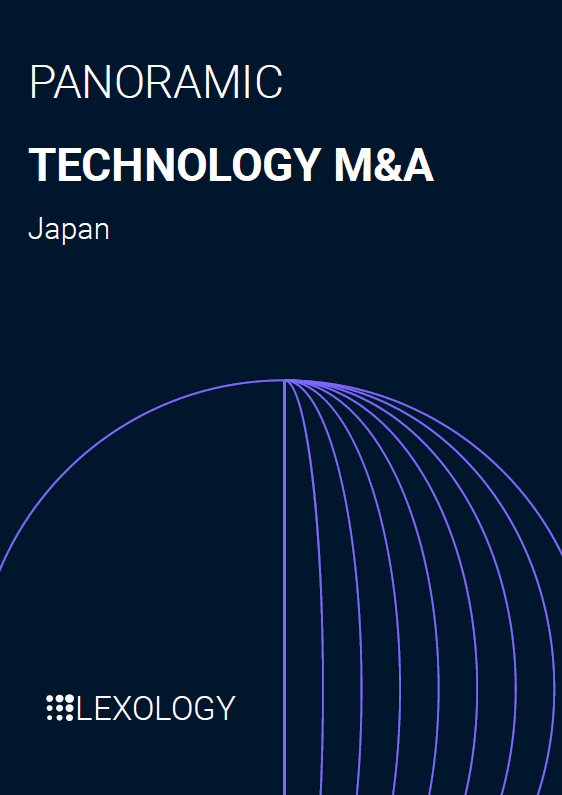
NO&T Asia Legal Review
In a significant move towards advancing digital transformation, e-government, and the digital economy in Vietnam, the new Data Law, marking the first version of its kind in Vietnam, including 5 chapters and 46 articles was officially promulgated by the National Assembly of Vietnam on 20 November 2024 (the “Data Law”). The Data Law regulates digital data; the building, development, protection, management, processing, and use of digital data; the national data center; the national integrated database; and digital data products and services. The Data Law, together with the draft law on personal data protection, is expected to enhance cybersecurity and decrease data breach risks which may have an effect on operations of both domestic and foreign invested enterprises in Vietnam.
The Data Law takes effect from 1 July 2025 and applies to not only Vietnamese agencies, organizations, and individuals; but also foreign agencies, organizations, and individuals in Vietnam; and foreign agencies, organizations, and individuals directly involved in or related to digital data activities in Vietnam. If provisions of a law enacted before the Data Law takes effect align with the Data Law’s principles, such law will prevail; otherwise, subsequent laws with provisions conflicting with the Data Law must specify which rules to follow.
Under the Data Law, digital data (sometimes referred to as “data”) is broadly defined as data about objects, phenomena, and events, including one or a combination of forms such as sound, images, numbers, text, and symbols, represented in digital form. This defination may be interpreted as inclusive of personal data.
Digital data may be categorized in various ways, and amongst others, includes the following:
Classification according to the sharing nature of data:
Classification according to the importance of data:
The Data Law has also provided the following definitions regarding data-related entities:
The Data Law stipulates that the rights of data owners over their data are property rights under the provisions of civil law. For the first time, the property right of data has been recognized, and the owner can capitalize on this asset while also using strong anti-infringement measures in laws relating to property to protect their data.
The Data Law has outlined the basic principles to be followed in the data processing process for agencies, organizations, and individuals; governance, identification, and management of risks arising from data processing.
Notably, the Data Law allows for free data transfer from overseas to Vietnam and processing of foreign data in Vietnam. Further, the Data Law also contains provisions regulating cross-border transfer and processing of core data and important data, which includes: (i) transferring data currently stored in Vietnam to storage systems outside Vietnam; (ii) transferring data from Vietnamese agencies, organizations, or individuals to foreign entities, individuals and (iii) using platforms outside Vietnam for data processing. Both (1) data transfer from overseas to Vietnam and processing of foreign data in Vietnam, and (2) cross-border transfer and processing of core data and important data must ensure national defense, security, public interest, and comply with Vietnamese laws and international treaties to which Vietnam is a party.
The data administrators that are not state agencies are obligated to self-assess and identify risks arising from data processing, and to notify these risks to data subjects and relevant agencies, organizations, or individuals . The data administrators of core and important data must periodically assess the risks associated with the processing activities of such data in accordance with regulations and notify the specialized authorities to coordinate in ensuring the safety and security of such data.
Therefore, to fullfill new obligations under the Data Law, data owners and data administrators must categorize their data into core data, important data, and other data. Specific guidance on the requirements, conditions, and procedures to ensure national defense, security is expected to be stipulated by future government’s decrees.
Under the Data Law, organizations and individuals must provide data when required by competent authorities, without needing the consent of the data subject, in following cases: (i) emergency response situations; (ii) national security threats that do not yet require emergency response; (iii) disasters; (iv) prevention of riots and terrorism.
Since the drafting stage, this regulation on data provision has sparked debates, particularly from enterprises concerned about being forced to disclose sensitive business information or data under private confidentiality obligations. However, the Data Law appears to address this concern by only encouraging domestic and foreign organizations and individuals to provide data under their ownership to competent authorities, and limiting data provision obligations to four above-mentioned situations, offering a reasonable environment for businesses in Vietnam.
The Data Law regulates data-related products and services in data intermediary activities, data analysis, data aggregation, electronic verification, and data exchanges platform (“sàn dữ liệu” in Vietnamese). A data exchange platform is a platform that provides data-related resources to support research, startup development, and innovation; offers data-related products and services to promote socio-economic development; and serves as an environment for trading and exchanging data and related products and services. The service of electronic verification and data exchanges platform shall be conducted by public non-business units and state-owned enterprises that meet the conditions for providing such services and are licensed for establishment in accordance with the law.
Each data-related product and service does not have a clear scope and includes a variety of activities (i.e. data intermediary products and services are products and services designed to establish a commercial relationship between data subjects, data owners, and the users of products and services, through agreements aimed at exchanging, sharing, and accessing data, as well as exercising the rights of data subjects, data owners, and data users.). Therefore, products and services that are not truly data intermediaries may inadvertently or due to misinterpretation be considered data intermediary products and services in certain cases. The Data Law entrusts the government to give further guidance on these contents.
The Data Law is an important step in providing a fundamental legal framework for digital data management aligning with the country’s digital transformation. The recognition of data as property marks a significant shift in how data is treated legally and provides data owners with more control and protection over their digital assets. However, some provisions in the law are still general and require detailed guidance from the government to ensure feasibility and effectiveness in implementation. Specially, enterprises should pay attention to the drafting and issuance of decrees and circulars guiding the Data Law, in order to stay updated on potential obligations that may arise, such as: obligations regarding the cross-border transfer of core and important data, obligations regarding risk assessments, obligations regarding data provision, and obligations for business registration of data products and services.
This newsletter is given as general information for reference purposes only and therefore does not constitute our firm’s legal advice. Any opinion stated in this newsletter is a personal view of the author(s) and not our firm’s official view. For any specific matter or legal issue, please do not rely on this newsletter but make sure to consult a legal adviser. We would be delighted to answer your questions, if any.


Shunsuke Minowa, Poonyisa Sornchangwat (Co-author)


(June 2025)
Hayata Matsunaga (Co-author)


(June 2025)
Keiji Tonomura, Yukiko Konno, Minh Thi Cao Koike, Yoshiteru Matsuzaki (Co-author)


Yuan Yao Lee


Hoai Truong


(August 2025)
Keiji Tonomura, Yoshiteru Matsuzaki (Co-author)


(July 2025)
Ryo Okubo, Yu Takahashi, Uchu Takehara, Naoto Obara (Co-author)


(June 2025)
Keiji Tonomura, Yukiko Konno, Minh Thi Cao Koike, Yoshiteru Matsuzaki (Co-author)


(March 2025)
Yasushi Kudo, Yukiko Konno, Takayuki Inukai (Co-author)


Nga Tran


(November 2024)
Keiji Tonomura, Masaki Mizukoshi, Uchu Takehara, Hitomi Kono (Co-author)


(October 2024)
Yasushi Kudo, Tsubasa Watanabe, Hayato Maruta (Co-author)


Supasit Boonsanong, Thananya Pholchaniko, Phareeya Yongpanich (Co-author)


Patricia O. Ko


Claire Chong, Nozomi Kato (Co-author)


Yuan Yao Lee


Supasit Boonsanong, Thananya Pholchaniko, Phareeya Yongpanich (Co-author)


Patricia O. Ko


Claire Chong, Nozomi Kato (Co-author)


Yuan Yao Lee


Hoai Truong


Ngoc Hoang


Long Nguyen


Nga Tran